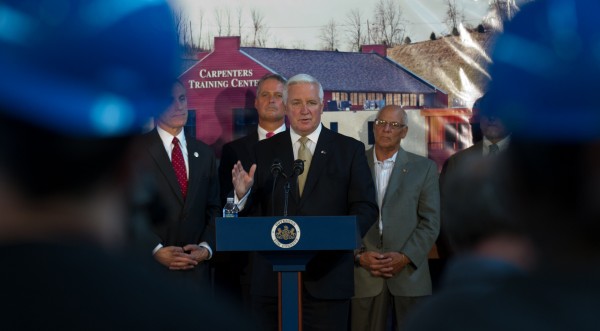First of 15 Immigration Bills Passes Committee
It took an hour for the House State Government Committee to advance the first piece of the National Security Begins at Home legislative package, via a party line vote. The legislation (HB 439) would revoke the professional license of an employer who knowingly hires illegal immigrants. “If you can hold somebody who has a professional license accountable to not employing illegal aliens,” State Rep. Daryl Metcalfe said after the meeting, “Then you start to shutdown some of that attractiveness of a professional licensee to undercut his competitor by hiring an illegal alien workforce.”
Metcalfe, the committee’s Republican chair, tells us he doesn’t expect all 15 bills to move this fall, but he is working with the Senate in efforts to get as many as possible to the governor’s desk. “This package of legislation seeks to shut down any attraction that might be in Pennsylvania for an illegal alien to reside here; access to jobs, access to public benefits,” Metcalfe explains.
Metcalfe may appear to have the Republican votes to pass the bills, but the committee’s Democrats aren’t rolling over. Minority chair Babette Josephs has been extremely vocal about the bills that she calls anti-immigrant. “We’re in the position of scaring away the fastest growing minority in this country, which is Latino voters,” Josephs says. “This is wrong.”
Another committee meeting is scheduled for Wednesday, when another of the 15-bills may be brought up for a vote. For now, Metcalfe says he’s taking the process one step at a time.





